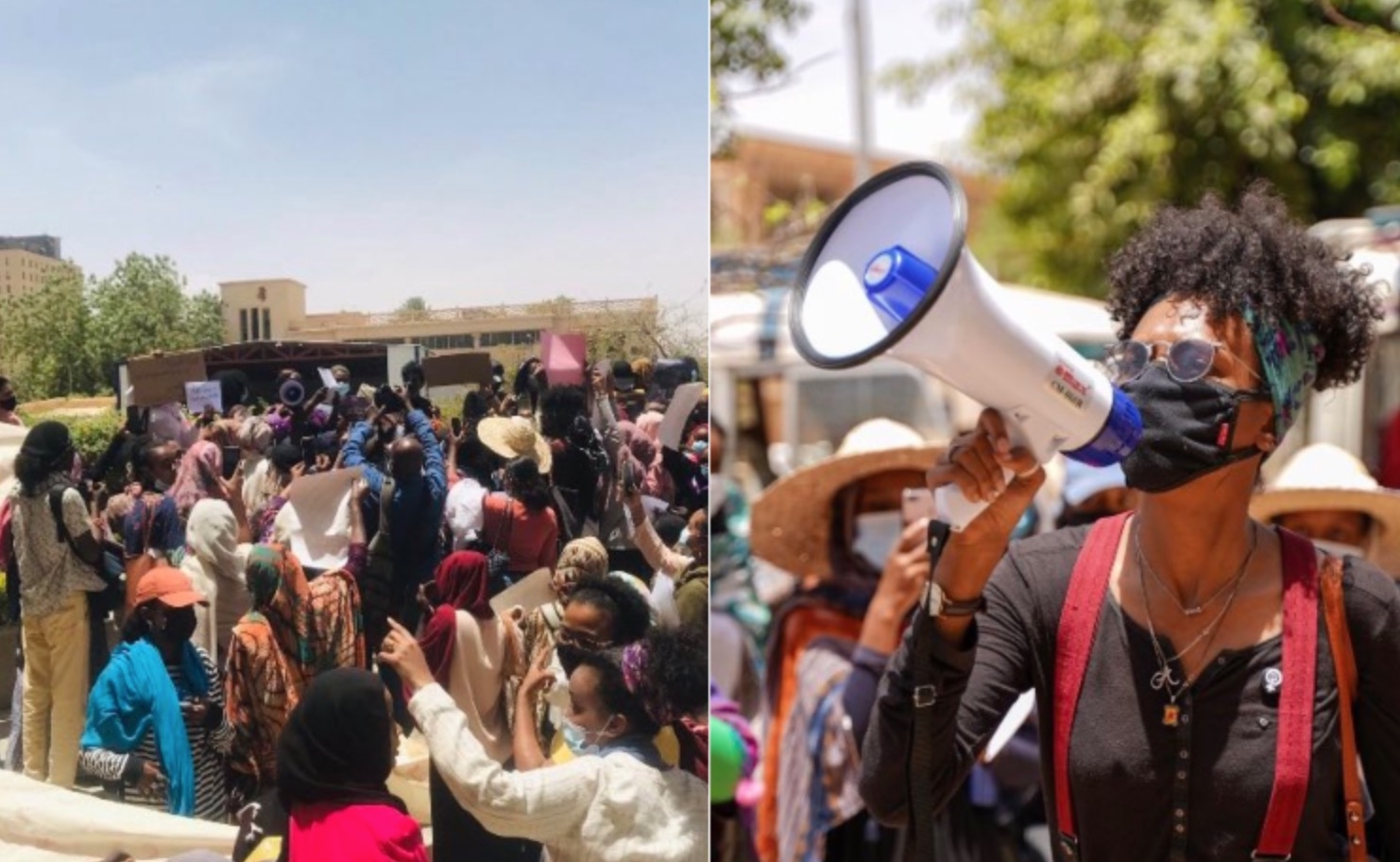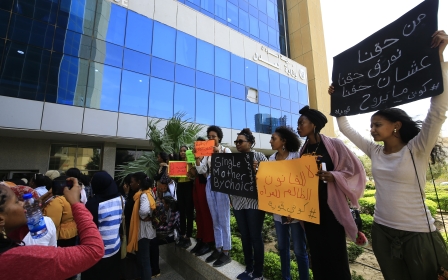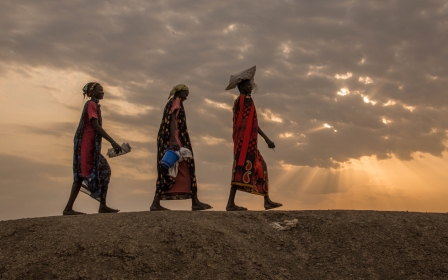Sudan: Hundreds of women rally against gender-based violence

Hundreds of women gathered in Sudan’s capital Khartoum on Thursday to protest against gender-based violence and restrictions against women in the country.
Online and in the streets, women shared signs reading “The streets are our right”, “No to laws that discriminate against women”, and “We are with you”.
Social media was used to galvanise women, with images being shared noting the time and location of the protests.
Among the demands made by the protesters were stricter laws and consequences for people who harass, rape or abuse women both inside and outside the home. The demonstrators also called for support, services and aid for victims of sexual violence.
A poster shared online under the title "our demands" listed various other requests to the government.
New MEE newsletter: Jerusalem Dispatch
Sign up to get the latest insights and analysis on Israel-Palestine, alongside Turkey Unpacked and other MEE newsletters
“We demand consequences for inciters of harassment, rape, assault and violence against women on social media, and new and clear laws that protect women of all ages inside and outside their homes," it read.
"We demand compulsory training courses on harassment and violence against women in any institution, company or organisation affiliated with the government, and prosecution and accountability for the Khartoum state police director for inciting violence against women.”
In March, the director of the Khartoum state police, Lieutenant General Eisa Ismail, came under fire after calling for the Public Order Law - in place under deposed President Omar al-Bashir - to be reinstated in order “to combat crime”. The law, repealed in late 2019, notably forbade women from wearing trousers, dancing, or mixing with men outside of their family.
The post listed a range of hashtags that have been used to raise awareness on gender-based violence in Sudan, such as "My father killed me" and "Harassment is a crime".
On Thursday, the hashtag "Women’s parade" was the number one trending topic on Twitter in Sudan, with over 17,000 people using it to shed light on the movement.
According to news reports, Sudan - like other countries - has seen a surge in gender-based violence during the Covid-19 pandemic.
Last year, Sulaim al-Khalifa, the head of Sudan’s gender department at the Social Welfare Ministry, said that her office documented over 40 incidents of gender-based violence in the space of a month, including rapes and beatings of women and girls in Khartoum and other towns.
Sudan has faced an unstable transition, under joint military and civilian leaders, following the toppling of former President Omar al-Bashir in 2019 after protests rocked the country.
Under al-Bashir’s 30-year rule, there were no laws to protect women and girls, which many campaigners say exposed them to abuse within their families.
The power-sharing government has faced a plethora of challenges since then, including worsening economic conditions, political tensions, the pandemic, and calls for accountability for those who were killed in the protest movement.
Last year, Sudan outlawed female genital mutilation (FGM), a move that was hailed by women’s rights campaigners.
The new law states that anyone who performs FGM, whether inside a medical establishment or elsewhere, will risk a fine and three years in prison.
According to United Nations data, almost 90 percent of women and girls in Sudan have undergone FGM, usually involving the partial or total removal of the labia and the clitoris.
Women's rights groups praised the new legislation, but warned it could be hard to change minds in communities that view the practice as a prerequisite for improving marriage prospects.
Middle East Eye delivers independent and unrivalled coverage and analysis of the Middle East, North Africa and beyond. To learn more about republishing this content and the associated fees, please fill out this form. More about MEE can be found here.




